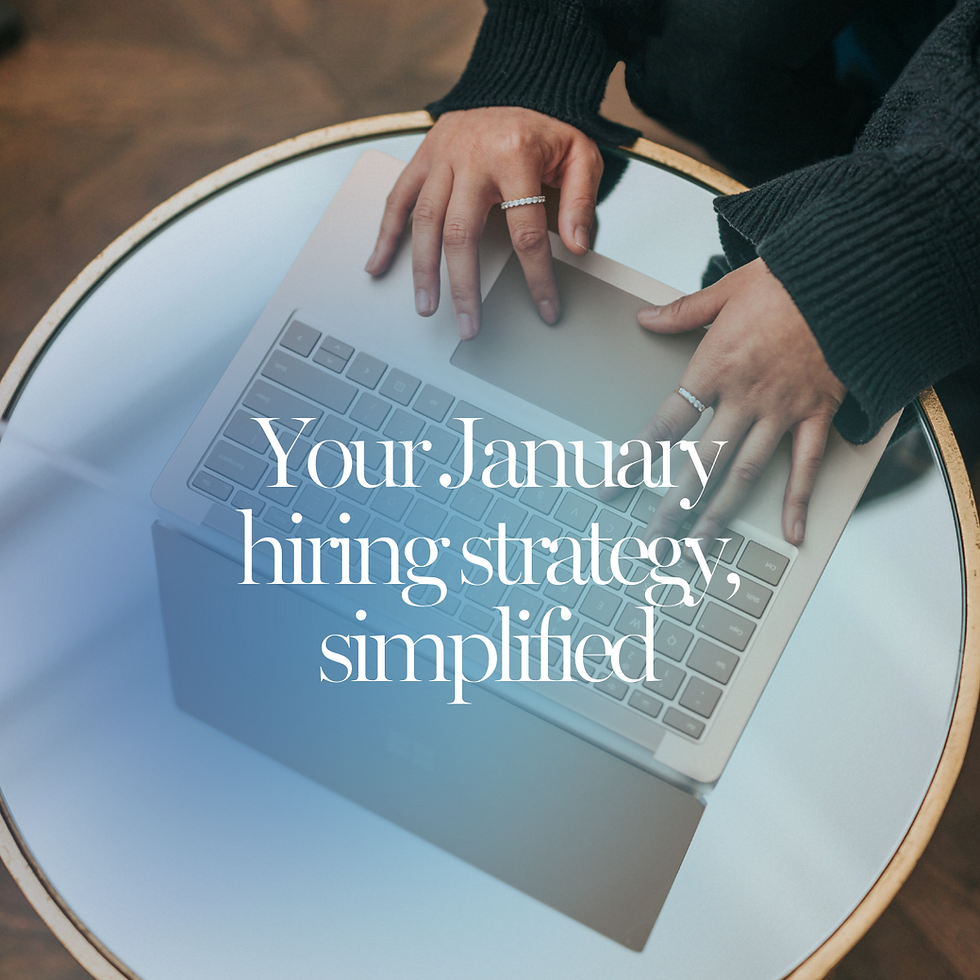How to Structure an Effective Interview Process, and Why It Matters More Than You Think
- Michelle Denny
- Jul 27, 2025
- 4 min read
In our last blog, we explored why there’s a world of difference between a good-looking CV and the right candidate fit.
In this addition, we’re digging into what happens next, because even if you’ve found someone who looks perfect on paper, your interview process could still make or break a successful hire.

We know that many SMEs and hiring managers don’t have a full HR function behind them. You’re running busy operations, wearing multiple hats, and sometimes, recruitment is just one more job on your desk. But here’s the thing:
How you structure your interviews directly affects who you hire, and how they perform.
Now we aren’t here to teach you to such eggs or lecture, and we’re definitely not here to overcomplicate things. But we are here to offer grounded guidance, built from years of getting under the skin of recruitment and watching the difference a well-structured process makes. Not just for candidates but for you, your teams, and ultimately your business.
Why structure matters (even if you “just know” when someone’s right)
We hear this a lot: “I trust my gut in interviews, I can tell if someone’s a good fit.”
And we’re not saying you can’t. But without structure, that gut feeling is easy to confuse with bias. It can lead to inconsistency, missed red flags, or worse passing over the best candidate because you didn’t ask the right questions or give them the opportunity to show you what they’re made of.
As a minimum a good interview structure should:
Level the playing field for every candidate
Ensure consistency in how you assess people
Give a fair impression of your business and its expectations
Help you make confident, evidence-based decisions
So, what does a structured interview actually look like?
There’s no one-size-fits-all, but every effective interview process has a few key ingredients:
1. Preparation - for you and the candidate
Have a clear brief. What are you assessing, and why?
Share what to expect. Candidates do better when they’re prepared, and your process will feel more professional and respectful.
2. A defined structure and format
Decide the stages: How many interviews? Will there be a task or presentation?
Choose your panel wisely, who needs to be in the room, and who might skew the dynamic?
3. Consistent, competency-led questions
Use the same core questions for every candidate.
Focus on real situations: “Tell me about a time when…” rather than hypotheticals.
Probe for specifics, not just polished responses.
4. Space for them to ask questions (and for you to promote the role)
Interviews are a two-way process. The best candidates want to know what they’re joining make sure you give them something meaningful to go away with.
The common traps we see and how to avoid them
No structure at all:
Having a “chat” can feel friendly but doesn’t reveal enough.
Too rigid:
Overly scripted interviews can stifle natural interaction. Leave room to go deeper.
Inconsistent panels or criteria: If different people are asking different things, it’s impossible to compare fairly.
Missing the “fit” questions:
You can’t assess alignment with your culture or values if you don’t ask about them.
A poor process doesn’t just waste time it costs you talent
It’s not just about picking the wrong person. The right person might walk away if your process is unclear, unstructured or underwhelming.
The best candidates are often balancing multiple opportunities. They notice when an interview feels slapdash, overly informal or vague. A well-run process shows that your business takes people and performance seriously.
We’ve supported candidates who’ve withdrawn from roles they loved because of a chaotic interview process.
We’ve also seen the opposite: people sold on businesses because the process was engaging, human, well-organised and purposeful.
We’ll be exploring that deeper in our next blog in the series.
How we help and why this matters to us
At Michelle Denny Recruitment Consultancy, we’re not HR practitioners, n or do we pretend to be. But what we are is experts in recruitment, and we work hard to make sure that by the time we present a candidate to you, as part of a shortlist, they’re already a strong fit
What we can’t control is what happens when they walk into the room (or dial into the video call).
That’s why we work consultatively with our clients to review and refine their interview processes. From simple structure tweaks to help building assessment tasks, we’ll support you to create an experience that gives the candidate a fair, professional impression and gives you what you need to make the right decision.
Because the wrong hire is a costly mistake,but the right one, hired through a process that builds clarity and confidence? That’s where the real opportunity lies, it’s a growth-maker.
Let’s talk about your process
Whether you’ve got a solid structure already or know it could use a rethink, we’re here to help. Let’s review how your interviews are working and whether they’re setting you and your candidates up for success.
Message us to arrange a conversation, or visit www.michelledennyrecruitment.com to learn more about how we support hiring with purpose.




Comments